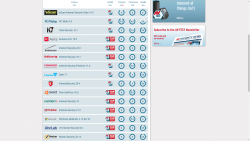- Joined
- Nov 27, 2010
- Messages
- 924 (0.17/day)
| System Name | future xeon II |
|---|---|
| Processor | DUAL SOCKET xeon e5 2686 v3 , 36c/72t, hacked all cores @3.5ghz, TDP limit hacked |
| Motherboard | asrock rack ep2c612 ws |
| Cooling | case fans,liquid corsair h100iv2 x2 |
| Memory | 96 gb ddr4 2133mhz gskill+corsair |
| Video Card(s) | 2x 1080 sc acx3 SLI, @STOCK |
| Storage | Hp ex950 2tb nvme+ adata xpg sx8200 pro 1tb nvme+ sata ssd's+ spinners |
| Display(s) | philips 40" bdm4065uc 4k @60 |
| Case | silverstone temjin tj07-b |
| Audio Device(s) | sb Z |
| Power Supply | corsair hx1200i |
| Mouse | corsair m95 16 buttons |
| Keyboard | microsoft internet keyboard pro |
| Software | windows 10 x64 1903 ,enterprise |
| Benchmark Scores | fire strike ultra- 10k time spy- 15k cpu z- 400/15000 |
In windows 1809, The 3rd party AV is required to be run in protected mode/secure mode, and be compatible with such, otherwise windows defender will remain enabled and will run side by side with your AV, which can cause conflicts, false positives, and I find it annoying it updates definitions on it's own and takes the liberty to delete files I need , which it thinks are suspicious, unwanted, or whatever, and needing constantly to get into settings and restore and exclude manually stuff.
However, no complicated maneuvers are required to disable it, it is quite straightforward. Get winaero tweaker, a free utility to slim down and customize windows 10. Look for windows defender section, and simply click DISABLE WINDOWS DEFENDER. reboot and it should not bother you no more. It's equally easy to re-enable it from the same page in the utility. And this way, you don't tamper with system files or break any built-in consistency. The other protections and the security center will still function, to be able to review your security status and what not.
However, no complicated maneuvers are required to disable it, it is quite straightforward. Get winaero tweaker, a free utility to slim down and customize windows 10. Look for windows defender section, and simply click DISABLE WINDOWS DEFENDER. reboot and it should not bother you no more. It's equally easy to re-enable it from the same page in the utility. And this way, you don't tamper with system files or break any built-in consistency. The other protections and the security center will still function, to be able to review your security status and what not.






 Sorry but that’s the only case where Defender is “deleting” things.
Sorry but that’s the only case where Defender is “deleting” things.
